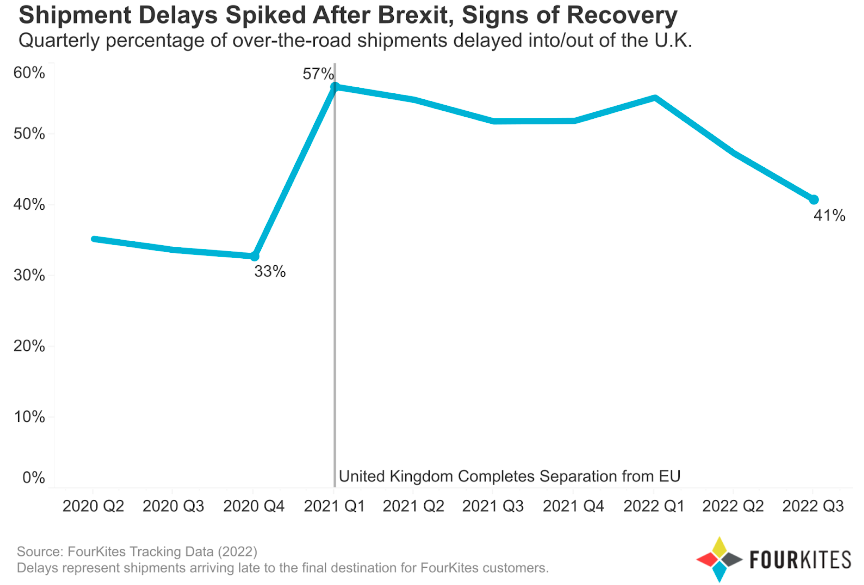Both delays and transit speed at UK ports after Brexit appear to have slowly recovered as companies have adapted their supply chains, with delays falling to 41% and average journey transit speed increasing to 5.3 miles per hour as of Q3 2022. The analysis comes from FourKites.

On-time performance of shipments was significantly impacted by the official completion of Brexit starting at the beginning of 2021, though the supply chain appears to be adapting as we approach the end of 2022.
In Q4 2020, FourKites customers saw an average of 33% of their over-the-road shipments traveling to or from the United Kingdom delayed.
After the Brexit transition period completed at the end of December 2020, FourKites saw this spike to 57% of shipments delayed, an increased rate of 73% in delays. Similarly, the average transit speed for over-the-road shipments from first pickup to final destination decreased from 5.0 miles per hour to 3.6 miles per hour on average, a decrease of 28%.

FourKites has also seen a consistent impact to on-time performance for shipments traveling across the Schengen Zone boundaries through 2022 so far.
For over-the-road shipments traveling across country borders, shipments crossing the Schengen Zone had a higher percentage of delays as well as a lower average transit speed.
As of Q3 2022, shipments crossing the Schengen Zone boundary were delayed 37% of the time.
For shipments remaining outside the Schengen Zone or shipments traveling between Schengen Zone countries, shipments were delayed only 24% of the time.
FourKites saw a similar difference with average shipment transit speeds, with shipments crossing the Schengen Zone boundary traveling at 3.9 miles per hours on average in Q3 2022, compared with 4.4 miles per hour for shipments that did not cross the boundary.

